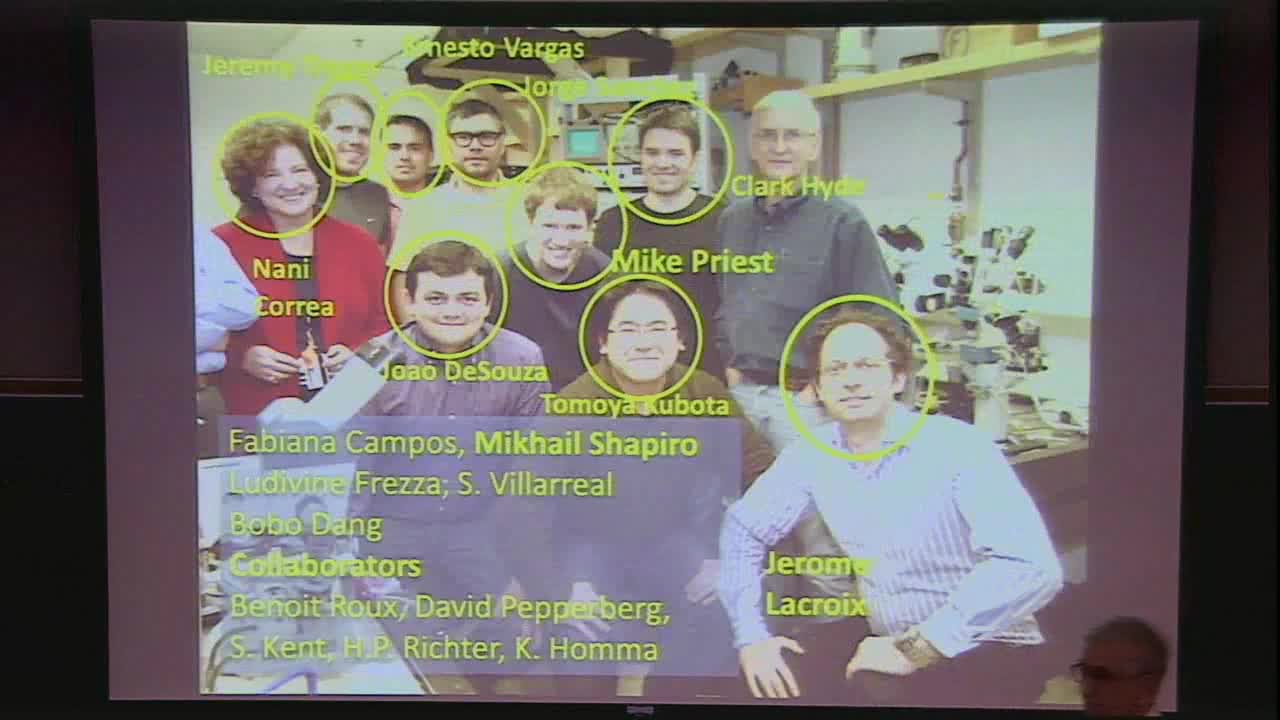Voltage Sensors, Capacitance and Excitability
Presenter
July 21, 2015
Keywords:
- Biology
Abstract
Action potentials are the packets of communication in the nervous system. The voltage dependent sodium and potassium channels are the crucial players in the initiation and propagation of the action potential. Voltage sensing in these channels is mediated by the movement of intrinsic charges of the channel proteins in response to changes in the electric field across the cell membrane and they contribute to the non-linear capacitance of the cell membrane. The capacitance may also be affected by temperature changes, changing the membrane potential and thus initiating action potentials by opening voltage sensing sodium and potassium channels. The movement of the sensing charges can be recorded and studied as gating currents giving information on the conformational changes occurring in voltage-sensitive proteins. One of the big challenges is the correlation of these currents with structural changes within the protein and our present approach is a combination of electrical and spectroscopic techniques. Ultimately, these results must be interpreted as the physical interaction of the charged regions of the protein with the landscape of energy.
